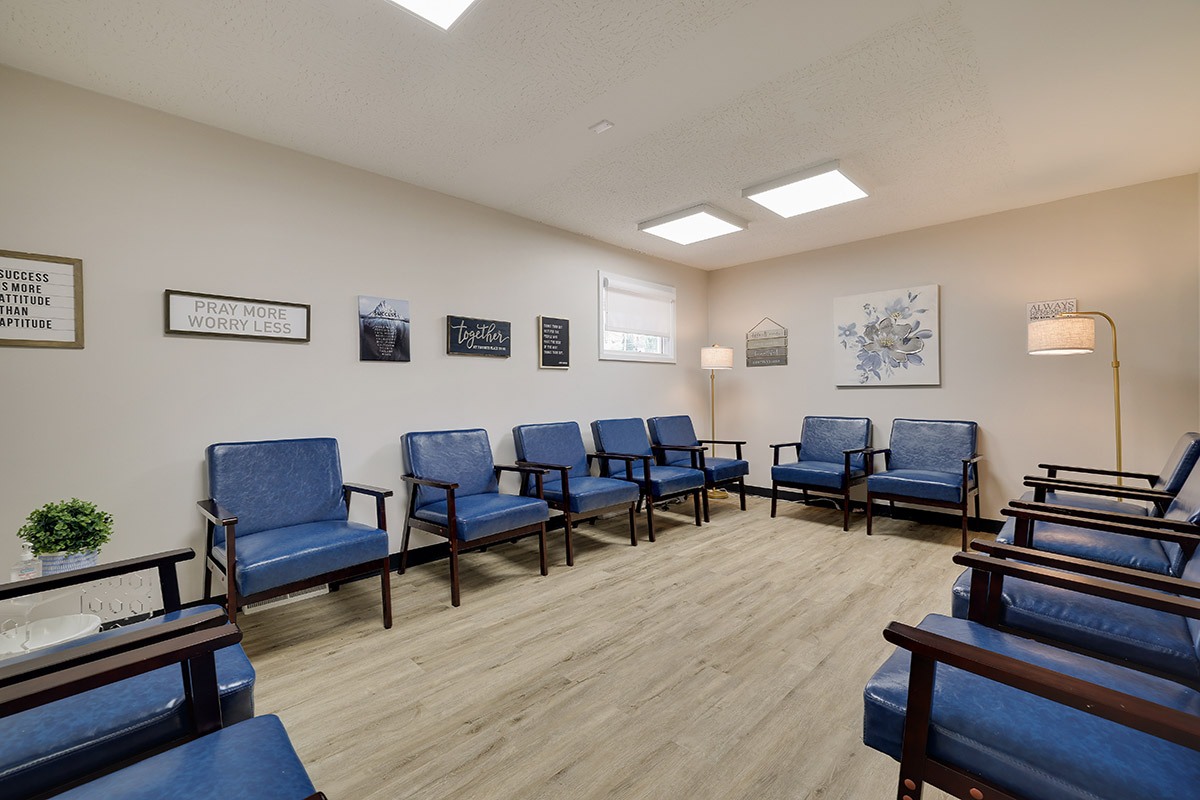Is there a cure for alcoholism? No one is beyond hope. While some people can use alcohol in ways that aren’t harmful, people with alcohol use disorder, or AUD, have an inability to stop drinking that has made their life unmanageable. For that reason, there is no recognized cure for alcoholism.
What Is Alcoholism?
Alcoholism is a type of substance use disorder (SUD) that involves the misuse or overuse of alcohol. This can lead to problems including impaired sociability and inhibition, irritability, and anxiety. People struggling with this condition crave alcohol when they don’t have it and are unable to stop or reduce the amount they consume if they begin drinking again. Individuals who rely on alcohol to relax or reduce their anxiety are at elevated risk for developing alcoholism.
Alcoholism is a chronic condition, meaning the condition does not go away entirely after treatment. Further, it is a condition that can be managed but not cured. Management can take many forms, but the focus is on maintaining a sober life and preventing relapse. To avoid relapsing, there are many treatment options for alcoholics to find a personalized path toward a healthier and brighter future.
The Risks of Alcohol
Alcohol can cause severe negative effects on the brain and body when overwhelmed. Primarily, alcohol causes impairments in memory, balance, and judgment due to changes in stimulation and communication. When alcohol is misused long-term, neurotransmitters participating in both the rewards system and the stress circuit are affected. Over time, alcohol becomes a self-reinforcing habit, where the neurons experience functional changes so that they only function normally in the presence of alcohol.
Physically, alcohol can damage the liver, the organ responsible for breaking down alcohol and clearing it from the body. With long-term use, alcohol can also lead to heart disease, digestive problems, stroke, and even certain cancers. Worse, alcohol also negatively affects the immune system, making it more difficult to fight and recover from these issues.
Fortunately, with treatment and a commitment to eliminating alcohol, these effects can slowly begin to reverse. The degree to which the body and brain can recover from alcohol-related damage directly correlates with the amount of alcohol consumed each time and the length of time spent with AUD. No matter what effects you are experiencing, it is important to begin treating them as soon as possible.
Alcohol Treatment Options

Knowing your disorder or disease isn't curable can be challenging to accept, and the thought of seeking help can be daunting. However, several treatment methods have been proven to be effective in healing the lives of individuals who struggle with alcohol use disorder (AUD). The sooner you begin, the better your chances of reaching physical, mental, and addiction recovery.
The following alcohol recovery options can help you begin treating AUD and reversing the effects alcohol has had on your life.
Detox
In most cases, detoxification, or “detox,” is the first step taken when beginning the path toward recovery. During this process, participants will stop alcohol consumption entirely and allow the body to rid itself of it in the system. During the detox process, it is common to experience withdrawal symptoms. To increase the chances of success, medical supervision is established to ensure each client remains safe and healthy throughout the process. With medical supervision, medications can be administered to reduce withdrawal symptoms and curb cravings.
Inpatient Alcohol Rehab
People often wonder whether it’s better to go to inpatient or outpatient rehab for alcohol. After completing a detox program, many choose to move on to inpatient alcohol rehab. As the name implies, people in an inpatient program must stay at the facility during the entire program, which typically offers full-day classes, counseling, therapies, and more related to alcohol education and relapse prevention. This option is best suited for individuals who can benefit from an intensive focus on healing. For example, if your typical environment makes it difficult to remain sober, inpatient rehab may be your best option for remaining on the path toward recovery.
Partial Hospitalization Programs
Partial hospitalization programs (PHPs) are outpatient programs that function much like inpatient programs but without the residential requirement. Clients in these programs participate in recovery-related programming during the day, including counseling, therapy, and even medication assistance, but may return home in the evenings. These programs are most effective for individuals who have the support necessary to remain sober outside of a rehabilitation setting.
Intensive Outpatient Programs
An intensive outpatient program (IOP) still offers a full slate of rehabilitation programming spread over fewer hours per week than the other rehab programs listed above. IOPs usually meet for three or more days during the week for only a few hours at a time. IOPs allow even more free time for the individuals involved, which enables participants to work, attend school, and maintain family responsibilities if they choose to. Some individuals who have successfully completed other rehabilitation may transfer to an IOP after attending a more extensive program.
What Is Alcohol Rehab Like?
Regardless of which treatment plan is best for you, these methods all share one goal: treat your AUD. However, it's important to remember that treatment will not cure your AUD or eliminate the underlying issues that may have contributed to your use—effort and acceptance on your part is necessary for the treatment of this disorder to work. Seeking help can be one of the most difficult steps of the treatment process, but it's also one of the most important.
When you’ve reached out for help and decided to begin treatment, here is what you can expect.
Medical Detox
Most people begin by going through detox. As previously mentioned, you may suffer withdrawals depending on how reliant you are on alcohol. The symptoms of withdrawals can include:
- Nausea and vomiting
- Depression and anxiety
- Hallucinations
- Sleep issues
- Sweating
- Seizures
Beginning Rehab
After your body has been fully cleared of alcohol and the worst of the withdrawal symptoms have subsided, you’ll move into the next phase of your rehabilitation. For most rehab centers, the focus will be on treating behaviors through counseling. Through behavioral treatment, clients can build the skills necessary to refrain from seeking alcohol. Clients will learn new strategies to help them remain abstinent and modify their behaviors. By going through rehab, clients will be able to handle stressful environments easier and without reliance on alcohol.
The way beginning rehab takes place will depend on the type of treatment program you choose. After detox, you’ll meet with a counselor who will help you determine which type of treatment and setting is best for you. Most people will continue to meet with an individual counselor as well as participate in group sessions. Of course, depending on your situation, you may also be given individual therapy, in which you and a therapist talk through your issues and work on healthier solutions to manage them.
With your group, you can bond over shared experiences, spend time together, and create a strong support system. If you’re staying at an inpatient rehab facility, you’ll continue to engage with your group through several activities, including group therapy, recreational activities, meditation and mindfulness, meals, and more. Outpatient programs for alcohol will often hold group activities in the same manner, simply condensed into a smaller portion of the day.
Rehab programs typically last anywhere from 28 to 90 days, but many can last longer, depending on the individual and the program in place. Overall, including the detox process, the alcohol rehab total time usually lasts anywhere from one to three months, though the ultimate length depends on the individual. We’ve met several clients who initially worried about how long the process would take but are successful in their treatment and proud of their effort. If you’re struggling with alcohol use disorder, you can be successful with treatment.
Recovery Meetings
Recovery meetings are an effective tool to remain sober and focused on healing and are utilized in many inpatient and outpatient settings, as well as after official treatment has concluded. In these meetings, you’ll meet other individuals who are also recovering from AUD, share experiences, and provide support to help each other remain sober. These meetings can come in many forms, the most well-known one being the 12-step program offered by Alcoholics Anonymous (AA). Recovery meetings may be an effective tool in finding the support you need to manage your condition during treatment and avoid relapse after treatment has concluded.
Alcoholism Treatment FAQs

Here are some frequently asked questions we’ve heard from our clients over the years.
You Can Treat Alcoholism

You may feel that you’ve let alcohol control your life, but this doesn’t have to last forever. At Recovery Cove, we work diligently to ensure you can find healthier ways to manage your life. Our goal is for each of our clients to improve themselves, their relationships, and their futures without the heavy burden of alcohol.
Alcoholism can negatively impact the lives of everyone it touches. While there is not a surefire cure for alcoholism, access to a treatment program designed to repair these relationships and walk a path toward a brighter future can help you live a better life. See more information about our substance abuse treatment program.
Sources:
- https://pubs.niaaa.nih.gov/publications/aa63/aa63.htm
- https://www.samhsa.gov/find-help/national-helpline
- https://www.aa.org/the-twelve-steps

Clinical Director
Christine Todd is a Licensed Professional Counselor and an Advanced Certified Drug and Alcohol Counselor who enjoys working directly with a population that struggles with addiction and mental health disorders. Christine brings many years of clinical experience to the team at Recovery Cove, where she is currently the Clinical Director. In her role, she oversees the clinical department as a leader, educator and mentor, designing programming and protocols for a diverse client population.




